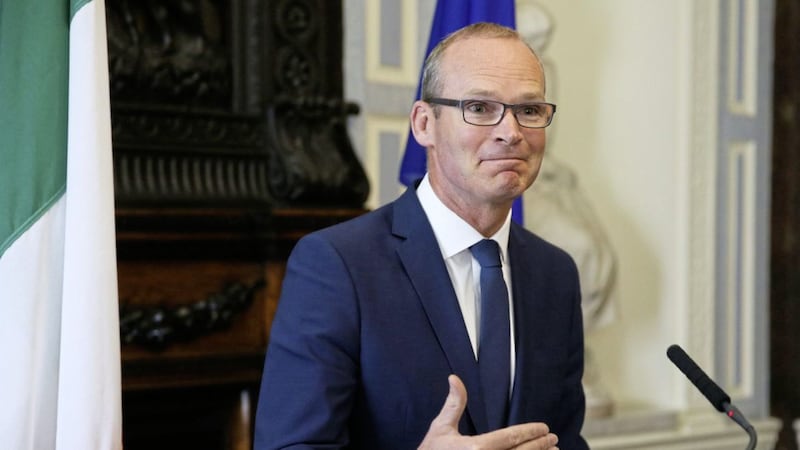THERESA May yesterday dismissed the prospect of joint authority should efforts to restore devolution at Stormont fail.
Prompted by a question in Westminster from DUP deputy leader Nigel Dodds, the British prime minister stressed the need to restore devolution but insisted joint authority over the north with the Irish government would not be considered if there is no breakthrough in the seven-month deadlock.
Her remarks came after foreign affairs minister Simon Coveney told reporters on Tuesday that Dublin would be seeking some input into how the north is governed were direct rule to be imposed.
"There can be no British-only direct rule – that is the Irish government's position," Mr Coveney said.
"It would be very difficult to even contemplate how direct rule would function in that context."
Within hours of the Fine Gael minister's comments, the British government issued a statement saying it was "ultimately for the United Kingdom government to provide the certainty over delivery of public services and good governance in Northern Ireland".
It said its stance was "consistent with our obligations" under the Good Friday Agreement.
"We will never countenance any arrangement, such as joint authority, inconsistent with the principle of consent in the agreement."
Mr Dodds welcomed the prime minister's remarks.
"Obviously the best outcome for everyone is to see the immediate restoration of devolution, but the government has rightly observed that joint authority is entirely inconsistent with the principle of consent," he said.
"The only options on the table are for local ministers in the Northern Ireland Executive to take decisions or for another means found for ministers to take decisions.”
However, the British government statement drew criticism from nationalists.
Sinn Féin northern leader Michelle O'Neill said both governments are "co-equal".
"They have a joint and equal role in the process, in safeguarding rights and implementing the agreements," she said.
"The Irish government must assert that role and the British government acknowledge that they are partners in that process."
The Mid Ulster MLA added that the St Andrews Agreement had ended the British government's ability to suspend the institutions and impose direct rule.
"It also committed in the event of no agreement to a new British-Irish partnership to implement the Good Friday Agreement," she said.
SDLP leader Colum Eastwood said unilateral direct rule would amount to "joint Tory-DUP direct rule" and undermine the principles of the Good Friday Agreement.
"The rapid and extreme response to Minister Coveney’s reasoned statement bears all the hallmarks of a British government politically controlled by the DUP," he said.
"The SDLP are clear that our first choice has always been and will always be restoring our devolved institutions. We believe that local decisions on behalf of local people are best made by our local institutions."
South Armagh-born Labour MP Conor McGinn accused the British government of overreacting to Mr Coveney's "matter-of-fact remarks"
He also claimed it was the latest indication that the DUP was "calling the Tory tune".
"The Irish government has a legitimate and constitutionally enshrined role to play in the north as a co-guarantor of the Good Friday Agreement," the St Helens North MP said.
"James Brokenshire's focus should be on getting devolution restored and sorting out the Brexit border mess, not manufacturing a row with the people he needs to work with to achieve both."







